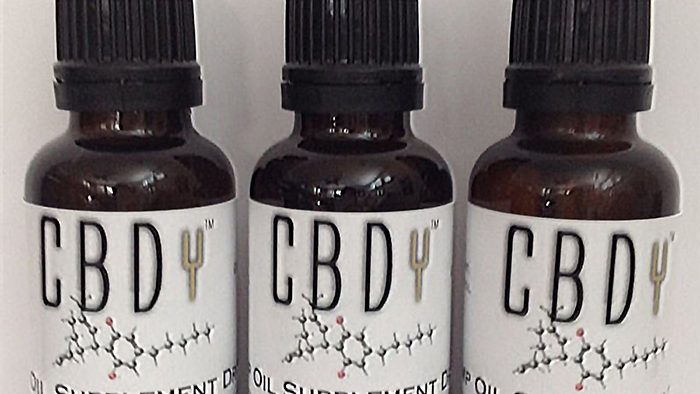Since delta-8 THC rose to prominence a few years ago, things have gotten really tricky
The perverseness of the federal government’s continued refusal to legalize weed might be best exemplified—at least in terms of how it affects the legal industry—by the burgeoning business of what have come to be known as “emerging cannabinoids.”
These are the compounds found in the cannabis plant that, like delta-9 THC (the most familiar of the cannabinoids) can get one high, but that exist in a legally uncertain realm. People in states where cannabis is still illegal can obtain these products and get just as stoned as a San Jose dispensary customer does on traditional cannabis products.
The most famous of these alternatives is delta-8 THC. It can be derived from hemp, which is legal in the United States. A whole industry has grown up around selling it, particularly in states where pot is still illegal (usually via online shops).
Hemp was legalized in the 2018 Farm Bill. As long as the hemp contains less than 0.3% THC, it can be grown and sold anywhere in the country.
But the law as written specifies delta-9 THC, which is what people are usually referring to when they say “THC.” That created a gigantic loophole through which a whole bunch of companies have passed, or, as is often the case, slithered. Many (though not all) of the vendors of these products are fly-by-night operators whose products are untested and might not be safe to consume.
Thanks to the language of the Farm Bill, delta-8 THC derived from hemp is, in the eyes of many, legal across the country. In the eyes of many others, though, it’s not, and that includes the 14 states that have banned the substances and the several more that are considering doing so.
Since delta-8 rose to marketplace prominence a few years ago, other hemp-derived compounds have been introduced (or popularized), and here’s where things get really tricky. Delta-8, like delta-9, occurs naturally in both pot and hemp in quantities high enough to create products that afford a high.
But products that are newer to the marketplace, like delta-6, delta-10 and THC-0, must be chemically synthesized from the THC in hemp. This pushes their legality over to the darker part of the gray area. Law enforcement and legislators have taken notice: The DEA recently sent a letter to a North Carolina cannabis attorney, advising him that THC-0 is not legal.
The Food and Drug Administration could have clarified all this and created rules for hemp-derived products. But after years of studying the matter, it decided in January to leave it all up to Congress, which at the present moment is totally dysfunctional and unlikely to pass anything meaningful.
Meanwhile, as states slowly move to outlaw the alt-THC products, Congress is getting ready to debate a new Farm Bill. It’s far from clear yet whether the hemp section of the bill will deal with the confusion over hemp-derived cannabinoids, but some marketers are worried that it will, or that state laws will put them out of business in one way or another.
Even as I was writing this column, I got a marketing email from Benji Boyce, CEO of the Florida-based Bulk Cannabinoids, with the subject line, “Are you ready for the end of the hemp industry?” It was a sales pitch: “Stock up now! It’s been real y’all! 60% Off! EVERYONE’S GOING OUT OF BUSINESS SALE!”
The issue is legislation in Florida that would limit how much THC such products are allowed to contain. Everyone, of course, is not going out of business, though Boyce’s company is at risk. The hemp industry will live on. Boyce’s note blamed the proposed legislation on “certain politicians” who are “heavily invested in the medical marijuana industry.”
This kind of thing is why licensed cannabis companies in legal states are increasingly disgusted by gray-market alt-THC peddlers. It’s not just the competition they face (after all, the hemp-derived products are aimed mostly at people in states where cannabis is still illegal). It’s also that fly-by-night operators tend to make the whole industry look bad, whether they’re selling iffy THC products or CBD gummies and oils that haven’t been tested and in some cases contain little or no CBD.
One relatively simple act could solve all these problems in one fell swoop: legalizing cannabis at the federal level.














